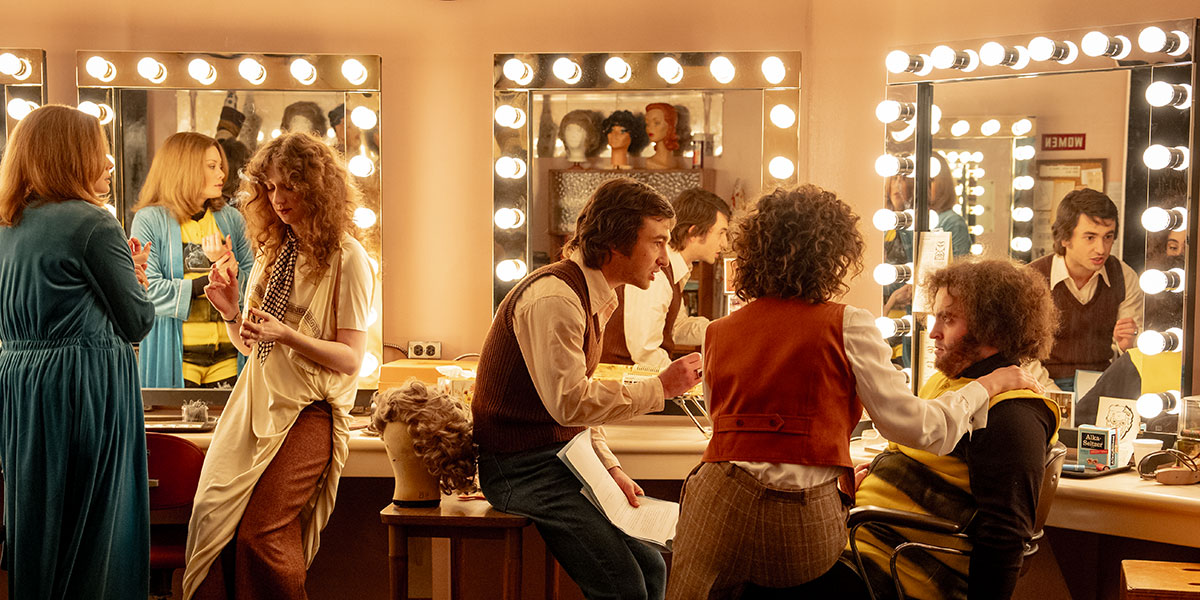‘Saturday Night’ review: No masterpiece, but a heck of a good time
3.5/5 muppets

For a film about one of the most iconic comedy shows, Saturday Night isn’t that funny. However, you can feel the creative energy of art in progress coming through the screen.
Saturday Night takes place in the 90 minutes leading up to the first-ever SNL performance live on NBC at 11:30 on October 11, 1975. It’s filled with the worst-case scenarios for live TV producers to experience; the show is constantly on the edge of cancellation, and fights are breaking out in the dressing room. Though it shows the nitty gritty behind the scenes, ultimately, Saturday Night is a love letter to the iconic institution at NBC.
I was surprised by how many people they pulled in for bit parts. It added to the hectic energy onscreen, but it sometimes felt like squandering talent. I didn’t see the point of having Nicolas Braun (Succession) play two different roles. If it was a gag, it didn’t play. If it was a reference, I don’t know it. If anything, it just left me a little confused. The portrayal of each cast member was well done, and every impersonation was acute, although not every actor needed a monologue or a bit to prove their chops; some cuts could have been made.
Saturday Night is a masterclass in chemistry. The ensemble nails the comaradarie element of this cacophony of characters. I was delighted to recognize a bunch of actors and be introduced to some younger talent. I’ve loved Dylan O’Brien for years as a Teen Wolf Stan; his portrayal of Dan Aykroyd gave the guy heart and implored my empathy despite finding the real Aykroyd a bit off-putting.
I hadn’t paid much attention to Ella Hunt. I had forgotten about Dickinson on Apple TV+, but Hunt’s Gilda Radner is fun and nostalgic. Radner was an extraordinary woman, and Hunt brought her alive beautifully. I was hoping for more of Lamorne Morris playing Garrett Morris, but alas, due to the nature of this chaotic, overly cast ensemble, actors weren’t given much room to shine. Despite the unique arc given to Morris—asking what Garrett Morris’s purpose on Saturday Night was and invoking a shy discussion about race—there wasn’t quite enough there to give a standout performance.
I found the funniest character/performance to be Andrew Barth Feldman (No Hard Feelings) as Neil Levy, who had only a handful of lines but some of the best gags.
Jason Reitman nailed the tone of Saturday Night; he has a good eye and solid instinct. He hasn’t tapped into ensemble pieces quite like this before, but he comes through with a well-produced movie. It’s not a perfect film; ensembles rarely are due to difficulty balancing presence and story, but Reitman pulls it off. The pacing is just right for a countdown film, and we’re hit with a surprising character arc in an otherwise highly plot-driven film.
Saturday Night’s throughline is Lorne Micheals, played by Gabriel Lebelle (The Fabelmans, American Gigolo). Lebelle was an excellent choice for this role. He doesn’t appear to be making any sort of impression of the legendary producer; he humanizes Lorne Michaels. From all the interviews with past and current cast members from SNL, the real Lore Michaels comes off as this mythical omniscient being with his hands on the strings of everyone at Studio 8H. Yet, Gabriel Lebelle, as the young Michaels, is all jitters, chaotic management, self-doubt, and emotional turmoil.
I had never considered Michaels’ personal life, but after watching Saturday Night, I decided to look into his history because I was a little confused by the relationship between Michaels and Rose Schuster, played by Rachel Sennott. Knowing what I do now, the dynamic makes more sense, although the film still leaves a mystery about what exactly happened.
Saturday Night is no masterpiece, but it’s one hell of a good time.
Have a tip we should know? tips@themarysue.com